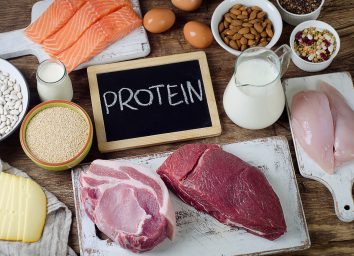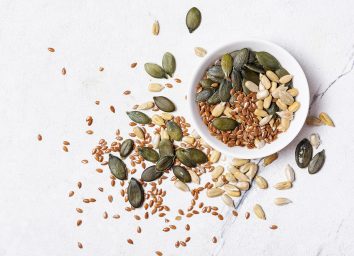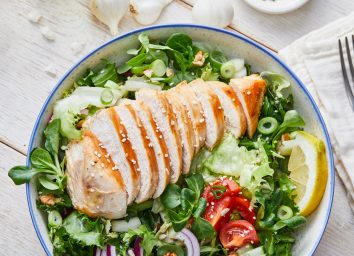
Digestive issues including acid reflux, gas, upset stomach, and bloating affect many of us. There are certain foods that can trigger these types of symptoms within the gastrointestinal tract. Foods that affect your digestion are very individualized, as one food can bother one person, while that same food is just fine in another individual.
Listening to your body can help identify which foods are bothersome. If you find that beans or cabbage bother you after every time you eat them, there are things you can do to these foods in order to still enjoy them without discomfort. Other foods, like citrus foods and peppermint, may also trigger digestive issues but may need to be avoided.
Find out which foods can cause digestive issues and what you can do if they bother your stomach. Remember, some of these foods provide good-for-you nutrients, so unless they upset your stomach or cause discomfort, they can be eaten as part of your healthy eating plan. And for more healthy gut tips, check out 19 Best Gut-Healthy Foods.
Fried foods
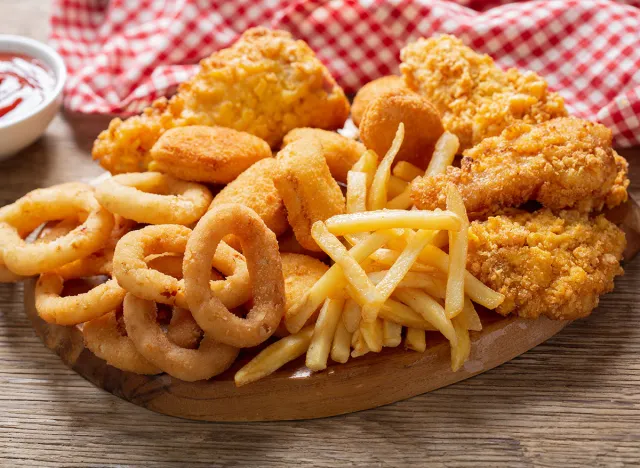
Fried food is high in fat and can lead to stomach aches and diarrhea. In addition, fried food has also been associated with acid reflux, as reflected in this 2021 published study from Preventative Nutrition and Food Science.
Try this instead: Opt for pan frying (using little oil) or other lower-fat cooking methods like roasting, baking, sautéing, and stir frying.
Sugar alcohols

Candy, gum, and other sugar-free foods made with sugar alcohols can cause gas and upset stomach in some folks. Read the ingredient list and look out for sweeteners ending in "-ol" like sorbitol, mannitol, xylitol, erythritol, and malititol.
Try this instead: If sugar alcohols bother you, opt for candy, gum, and other foods that are made without it. Remember, added sugar should be limited to no more than 10% of total calories, per the 2020-2025 Dietary Guidelines for Americans, so consume any foods with added sugar in small amounts as well.
High fructose corn syrup
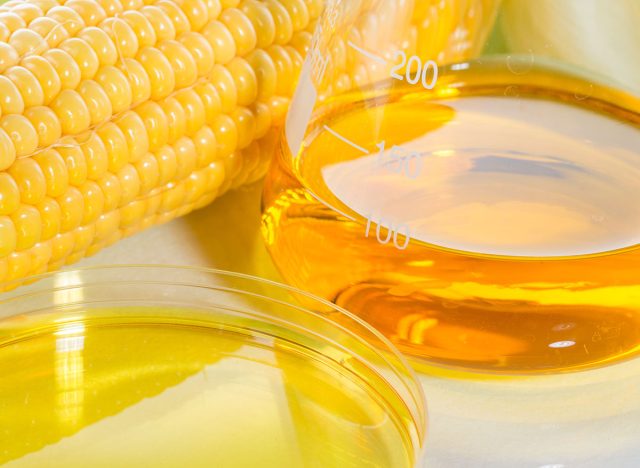
High fructose corn syrup is a sweetener used to make candy and pastries, and it can cause gas, diarrhea, bloating, and cramps in some folks.
Try this instead: Read the nutrition facts label and opt for candy, pastries, and other foods that do not contain this sweetener.
Citrus fruit

Highly acidic fruits like oranges, grapefruits, lemon, and limes can lead to heartburn in some folks. This is because citrus foods relax the esophageal sphincter (or valve), which can lead to acid going into the esophagus and causing heartburn. The acid can also slow the stomach from emptying, which can lead to acid from the stomach back flowing into the esophagus and again, causing heartburn.
Try this instead: Citrus foods do provide many good-for-you nutrients, but if these acidic foods lead to acid reflux, then avoid them and go for other non-citrus fruits as a sweet snack.
Peppermint

Peppermint has been known to trigger heartburn and indigestion in some folks. Peppermint can relax the esophageal sphincter, which is located between the stomach and esophagus. When this sphincter relaxes, it can cause acid from the stomach to go back up into the esophagus, leading to heartburn and indigestion.
Instead: If peppermint bothers you, avoid it and opt for other herbs or other types of tea.
Beans
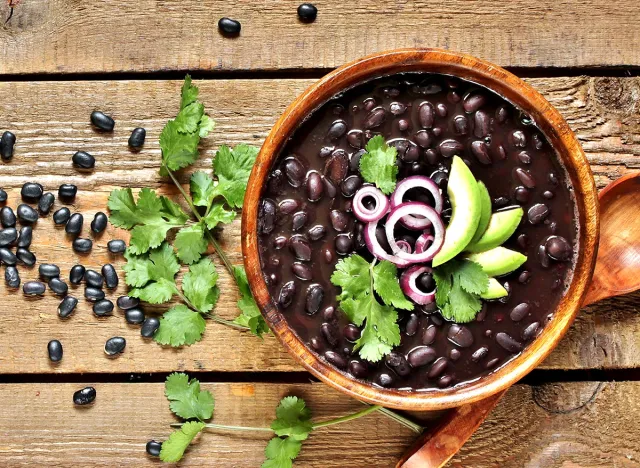
Beans contain oligosaccharides, which are non-digestible, fermentable fibers that may cause gas, abdominal discomfort, and bloating. They're actually beneficial for the gut, as they aren't digested in the stomach or upper part of the gut and make their way into the colon, where they are fermented by good bacteria. During this process, gas is created. So, even though beans are good for you, they may cause discomfort.
Try this instead: Soak dried beans for at least 4 hours and pour off the water before cooking to help minimize gas. Research also shows that if you're not used to eating beans and are finding yourself with tummy issues, then regular consumption of ½ cup of beans for at least 8 weeks can reduce bothersome symptoms.
Cruciferous vegetables
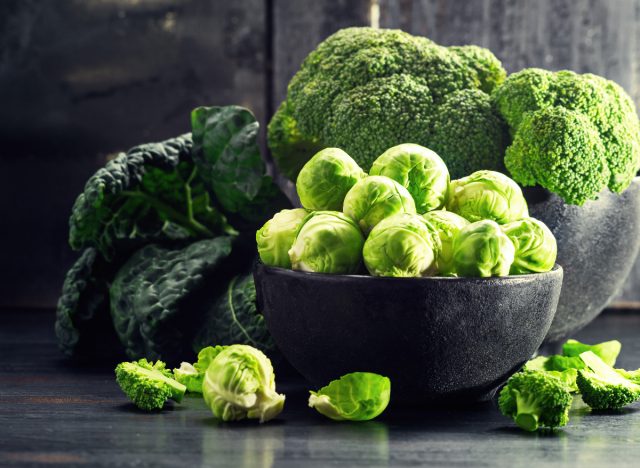
Cruciferous vegetables are veggies from the cabbage family and include cabbage, broccoli, kale, and collard greens. They contain the same sugars are beans that can lead to gas, abdominal discomfort, and bloating. They also are high in fiber, which can make them tougher for some individuals to digest.
Try this instead: If you're experiencing discomfort with these veggies, cook them instead of eating them raw. This tends to make them easier on the stomach and minimize gastrointestinal symptoms.
Spicy food
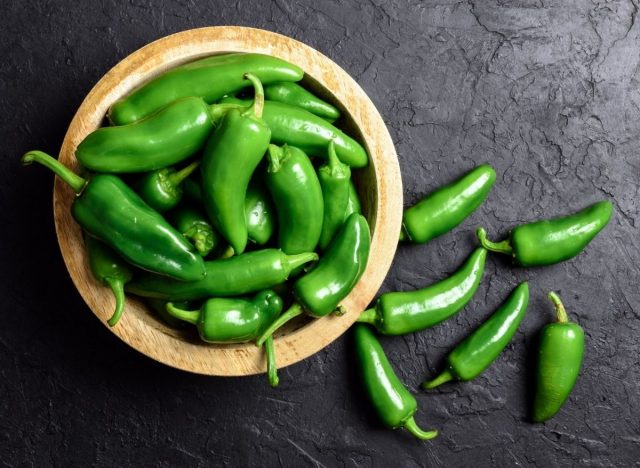
Some folks are sensitive to spicy food which can cause heartburn and acid reflux. Spicy food can relax the sphincter (or valve) that sits between the stomach and esophagus, which allows acidic food to go back from the stomach into the esophagus, creating heartburn and acid reflux.
Try this instead: If you're sensitive to spicy food, then lower the heat by adding fewer peppers and spices, or avoid it altogether and opt for blander foods.
Chocolate

Chocolate is another food that can cause the esophageal sphincter (or valve) to relax, which like peppermint and citrus fruit, can lead to heartburn and indigestion. Some folks may be sensitive to one or some of the foods that do this—so it is very individual.
Try this instead: If chocolate leads to symptoms of heartburn and indigestion, then try limiting your consumption of it. You don't necessarily have to give it up forever, but you may want to avoid it for the time being.
- Source: https://www.ncbi.nlm.nih.gov/pmc/articles/PMC8747955/
- Source: https://www.niddk.nih.gov/health-information/digestive-diseases/gas-digestive-tract/eating-diet-nutrition
- Source: https://www.dietaryguidelines.gov/current-dietary-guidelines
- Source: https://www.niddk.nih.gov/health-information/digestive-diseases/gas-digestive-tract/eating-diet-nutrition
- Source: https://pubmed.ncbi.nlm.nih.gov/22104320/


